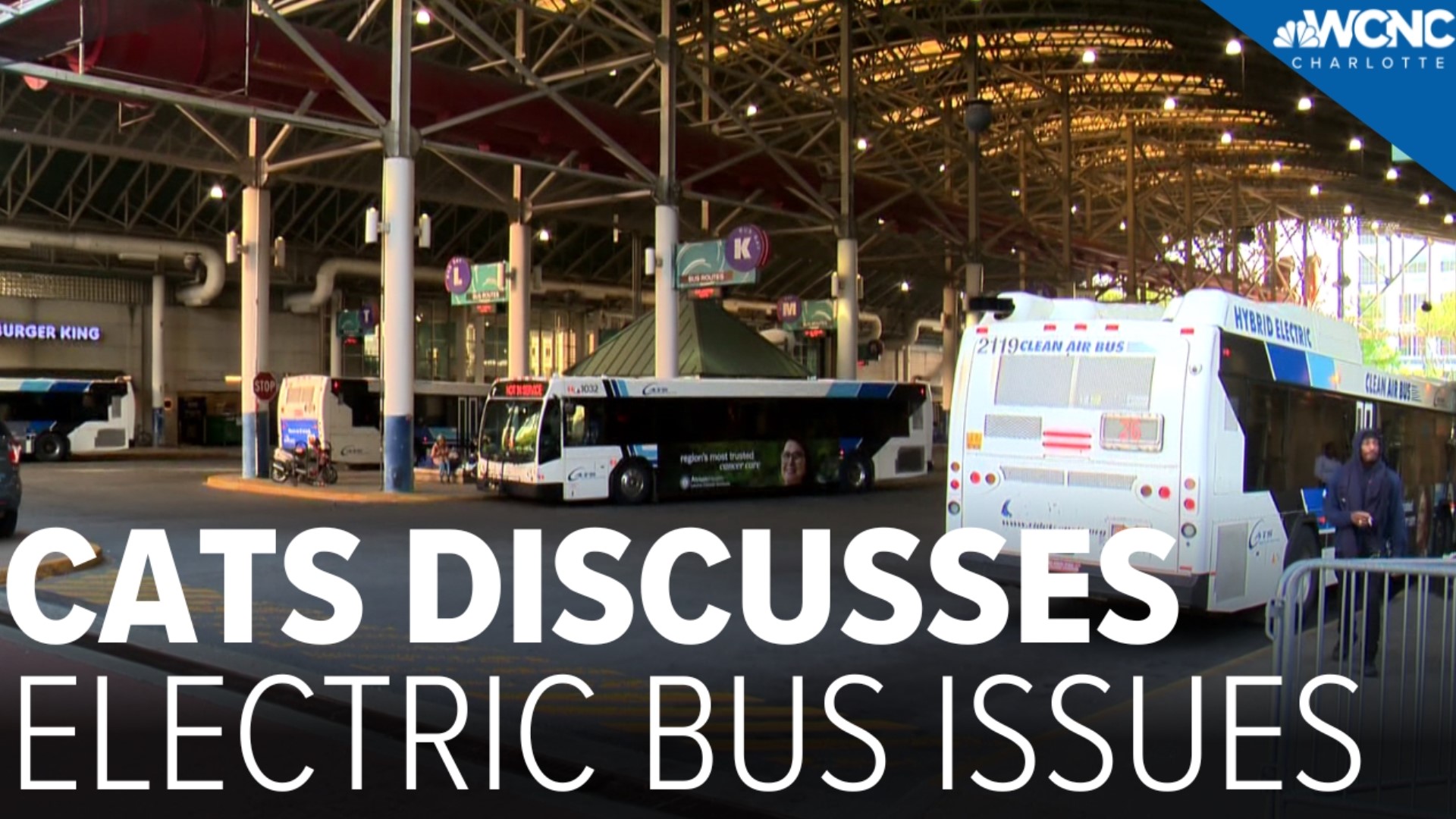CHARLOTTE, N.C. — Transit leaders from the Metropolitan Transit Commission (MTC) met Thursday and discussed its push for zero emissions. Charlotte Area Transit System (CATS) leaders said the push toward electric is working, but there are a few obstacles.
In the electric fleet, there are about 30% of the electric buses that don't work for their route. This route is longer than what the charge allows.
There's also something called a shake-out period. This means for some weeks, a battery electric bus was down more than it was working.
"We also learned we have space limitations when it comes to charging," a transit representative from CATS said. "The lots are full. It takes between four to five and a half hours to charge up a bus."
Some of the MTC highlighted inconsistencies in buses which have left riders waiting. Bus rider Reina Binyard called it quits on Thursday.
“I’ve been waiting for about 25 minutes, Binyard said. “I’m taking a Lyft.”
CATS presented data at the meeting Thursday showing ridership is up. From January 2022 to January 2023, bus ridership was up 21% and rail ridership was up almost 70%.
Whichever company the City of Charlotte hires to operate its public bus service starting in 2024 will get rewarded for meeting public expectations and penalized when CATS falls short.
The city issued a Request for Proposals (RFP) earlier this week "seeking a partner to operate and maintain its Bus Operations and Maintenance Services."
That company, which will supply the needed employees for bus operations, will be "service-oriented and aggressively focused on ensuring the best possible experience for CATS' customers," according to the RFP.
The solicitation comes as the city's contract with RATP Dev is set to expire next February. Under the private company's oversight, CATS has faced driver shortages, delays, and safety problems.
CATS Interim CEO Brent Cagle shared the city's intention to seek proposals during a Charlotte City Council Transportation Committee Meeting in February, which WFAE first reported.
"RATP Dev may or may not propose on that, but we expect some competition on that," Cagle said during the committee meeting.
The RFP outlines a series of incentives and disincentives based on monthly performance for everything from on-time stops, missed trips, accidents, preventative maintenance, safety, bus cleanliness, recordkeeping, and customer complaints.
Proposals are due by the middle of June.
Charlotte City Council would have to approve a final contract.
Contact Nate Morabito at nmorabito@wcnc.com and follow him on Facebook, Twitter and Instagram.

